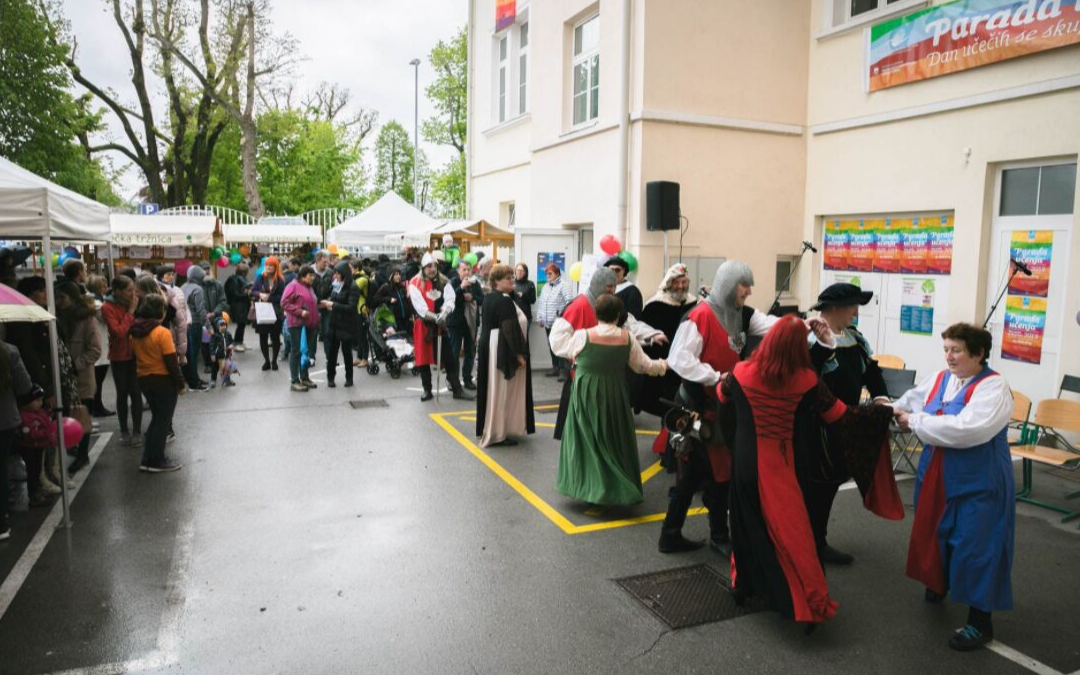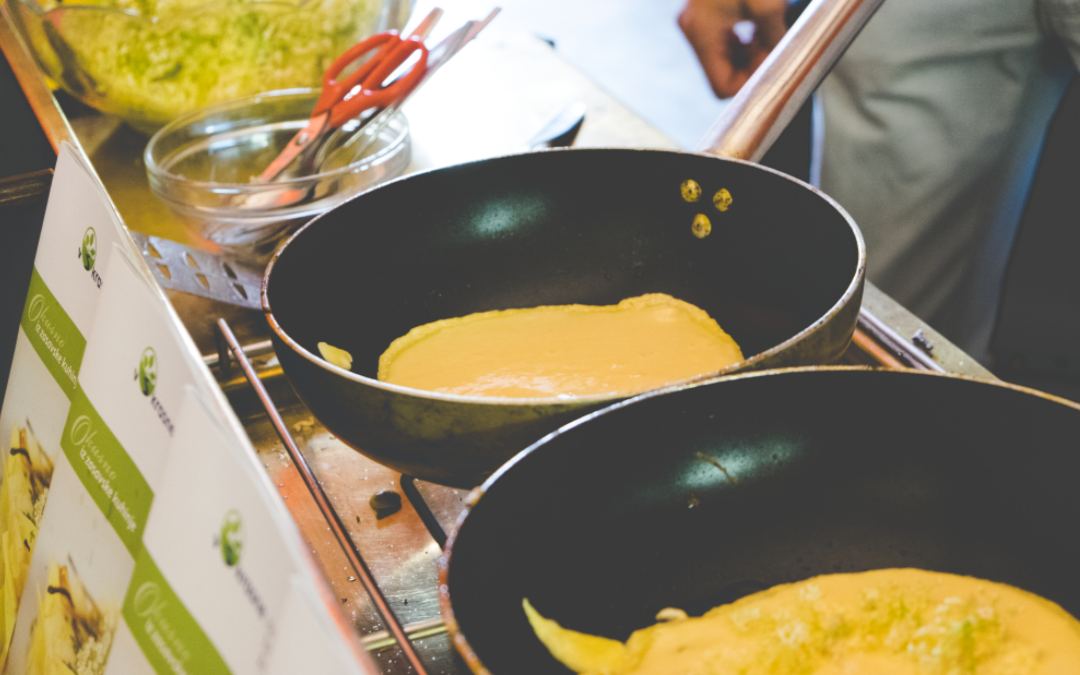For me, the stars of this year’s Zasavje Learning Parade were primary school pupils and students – Jakob and his classmates, a boy and a girl who enthusiastically provided a CPR demonstration, high school students who impressed me with an innovative bottle opener, a product of their practice company. And all those who took the stage and co-created a very dynamic atmosphere of learning opportunities. I concluded that the path to knowledge and skills of these young people would probably be straightforward, since I have noticed their desire for understanding and action. Furthermore, the support from the environment: the three local communities, educational and non-governmental organizations and many other lifelong learning providers with the Zasavje AEC at the forefront, could be felt. The mining perseverance and firmness that are in their blood are also of help.
Belgian guests from Wallonia, participants of a study visit within the EAAL and LLW projects also got enthusiastic about multi-generational and multicultural-based event of Zasavje. The Walloons unfortunately missed the seminar held a week earlier; therefore, they learned the details of AE and our Lifelong Learning Festival while driving to the LLW event location. They posed many questions and were particularly interested in how adult educators in Slovenia care for vulnerable target groups and how we establish and strengthen partnerships for the LLW organization. They obtained the most illustrative answers on-site, where the profession is transferred into the lives of learners.
They learned about work with Roma people, Albanian women, migrants and young people without proper education from their hosts in Maribor a day earlier. The Maribor AEC collaborators professionally and enthusiasticaly presented their extensive work in this field, namely, elementary school for adults, PLYA and European projects for non-formal education of migrants, which involve the latter as mentors. This reaffirmed the Belgians’ belief that we face similar challenges and can therefore learn a lot from one another. Above all, we all believe in the power of non-formal learning, which offers a second (sometimes even the first) opportunity and a way out of various hardships. Partnerships with other institutions, especially NGO, guidance and ongoing training of educators for work with specific population groups are a prerequisite for success.
Non-formal and informal learning pride themselves on many faces
The last Learning Parade brought us to Postojna. Now already traditional tree planting made quite a big impression on the guests. In Postojna, they planted their first ‘tree of knowledge’ in their new city park, the second one in front of a kindergarten. This time we planted it in front of the Postojna Health Centre. Véronique, Pascal and Raphaël willingly removed earth with shovels, and thus contributed to the establishment of another “growing monument” of lifelong learning. Various genres and achievements of non-formal and informal learning, many related to the history of this place, which boasts of knights, dragons, proteus and other unique attractions, were presented on the stands and stage. After a few days in Slovenia, Belgians have become accustomed to the hospitality and excellent knowledge of English among our young people and the elderly. However, they were surprised to get some additional explanations about the AE and Learning Parade in French from a kind colleague of Postojna AEC, Erika.
”We are heading home deeply impressed, full of good ideas and numerous questions,” wrote Pascal in his report posted at the EPALE. What could be transferred from Slovenian practice to their environment? Can any such idea be realised in Belgium? What would be the visibility and impact of this kind of festival? Who could participate and in what role? “There are many dilemmas, but at the same time we are grateful for the inspiring meetings in Slovenia,” concluded Pascal.
We will keep our thumbs crossed that they summon the courage and resources and create their first learning festival in 2021 within their new EAAL project.
Zvonka Pangerc Pahernik, MSc (zvonka.pangerc@acs.si), SIAE


